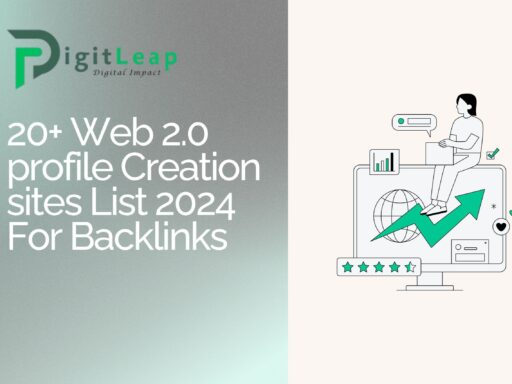15 Free Blogging Platforms For Creating Free Blog Sites Really Quickly In 2024
Introduction
In 2024, blogging continues to be a powerful tool for sharing ideas, building communities, and even earning income. Whether you’re a seasoned writer or just starting, choosing the right platform to host your blog is crucial. But with so many options out there, where do you start? Fortunately, there are numerous free blogging platforms that make it easy to get your blog up and running quickly—without spending a dime. In this guide, we’ll explore 15 of the best free blogging platforms available in 2024, each with its own unique features and benefits.
15 Free Blogging Platforms For Creating Free Blog Sites Really Quickly In 2024
1. WordPress.com
Overview of WordPress.com
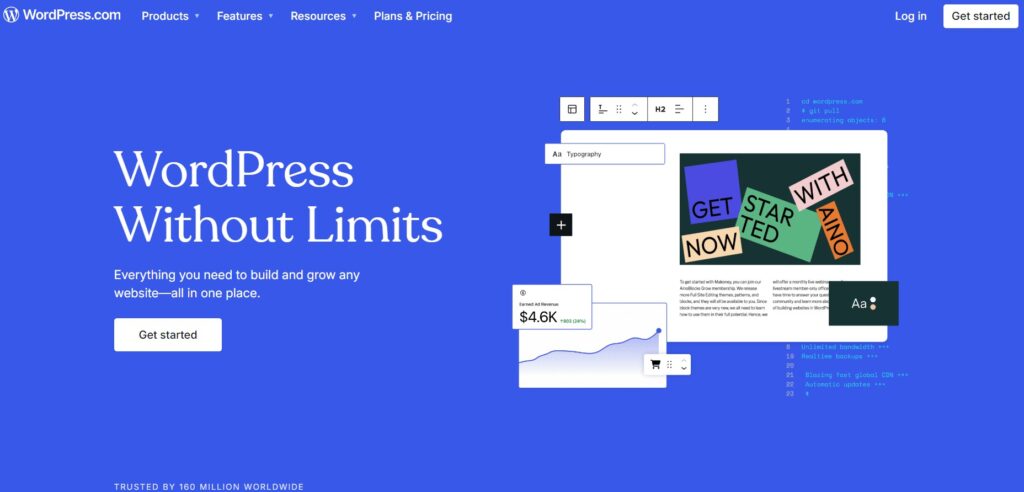
WordPress.com is one of the most popular blogging platforms in the world, and for a good reason. It’s user-friendly, versatile, and packed with features that make it an excellent choice for both beginners and experienced bloggers alike.
Features and Benefits
- Ease of Use: With a simple drag-and-drop interface, you can customize your blog’s appearance and layout without any coding knowledge.
- Themes and Plugins: WordPress.com offers a wide range of free themes and plugins, allowing you to personalize your blog to suit your style.
- Scalability: As your blog grows, WordPress.com offers various plans that let you upgrade for more features, including custom domains and advanced design options.
Who Should Use WordPress.com?
If you’re looking for a platform that combines simplicity with powerful features, WordPress.com is a solid choice. It’s ideal for bloggers who want to start small but have the option to expand their site in the future.
2. Blogger
Introduction to Blogger
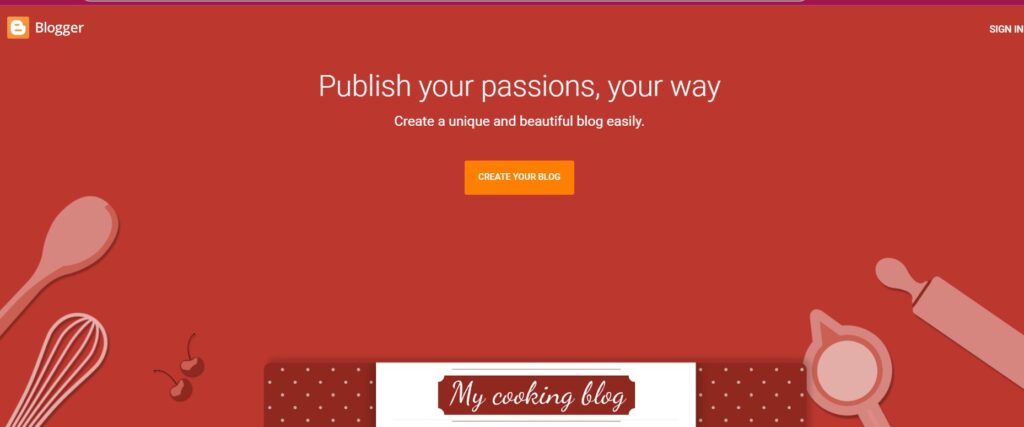
Blogger, owned by Google, is another popular free platform that has been around for years. It’s straightforward, making it perfect for those who want a no-frills blogging experience.
Key Features
- Integration with Google Services: Since it’s a Google product, Blogger integrates seamlessly with other Google services, such as AdSense and Analytics.
- Customizable Templates: While the options are more limited than WordPress, Blogger still offers a variety of templates to help you design your blog.
- Free Domain: Blogger provides a free Blogspot subdomain (e.g., yourblog.blogspot.com), which is great if you don’t want to purchase a custom domain right away.
Ideal Users for Blogger
Blogger is best suited for beginners who want to create a simple blog quickly, especially those who are already familiar with other Google services.
3. Wix
Wix as a Blogging Platform
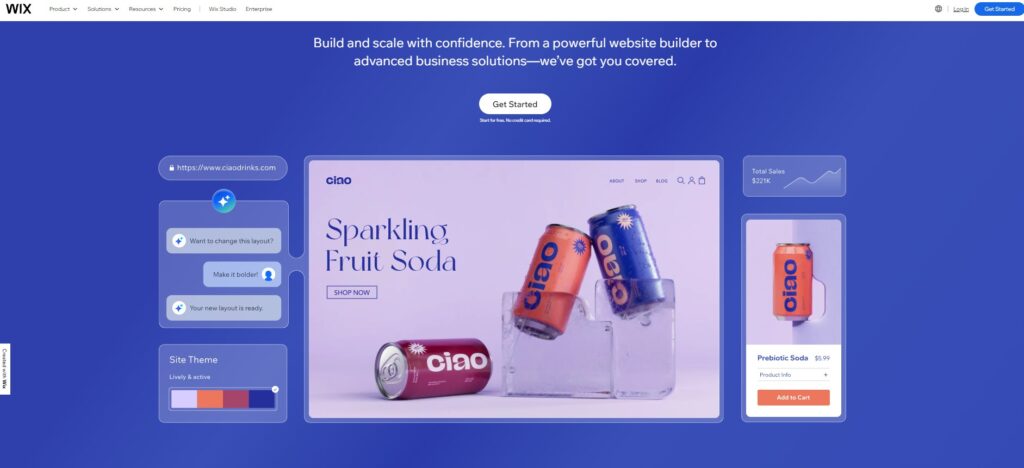
Wix is known for its drag-and-drop website builder, which also includes robust blogging capabilities. It’s a versatile platform that caters to users who need both a blog and a full-fledged website.
Pros and Cons
- Pros:
- User-Friendly: Wix’s drag-and-drop interface is one of the most intuitive, making it easy to design your blog exactly how you want it.
- Visual Appeal: Wix offers stunning templates and design elements that are perfect for visually-focused bloggers.
- Cons:
- Limited Blogging Features: Compared to platforms like WordPress, Wix’s blogging features are somewhat limited, making it less ideal for large-scale or content-heavy blogs.
Best Use Cases for Wix
Wix is great for bloggers who want to create visually appealing websites with integrated blogs, such as photographers, artists, or small businesses.
4. Medium
What is Medium?
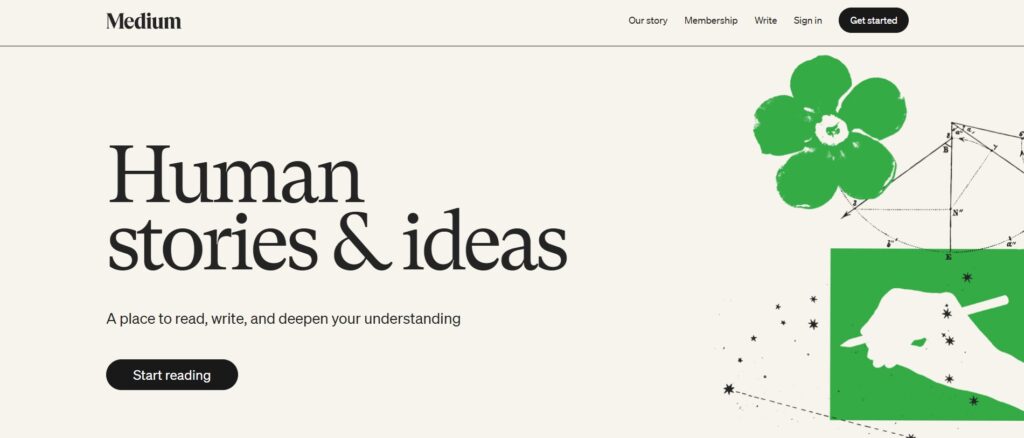
Medium is a platform that emphasizes writing and community over customization. It’s a favorite among writers, journalists, and thought leaders who want to reach a broad audience without the need for a custom website.
Features and Community
- Built-In Audience: Medium has a large, engaged community, making it easier to get your content in front of readers.
- Minimalist Design: The focus on content over design means you can concentrate on writing without worrying about the technical aspects of blogging.
- Monetization: Medium offers a partner program that allows you to earn money based on how much engagement your posts receive.
Why Medium is Perfect for Writers
If you’re a writer looking to share your work with a larger audience and you’re not concerned about personalizing your blog’s appearance, Medium is an excellent choice.
5. Tumblr
Tumblr Overview
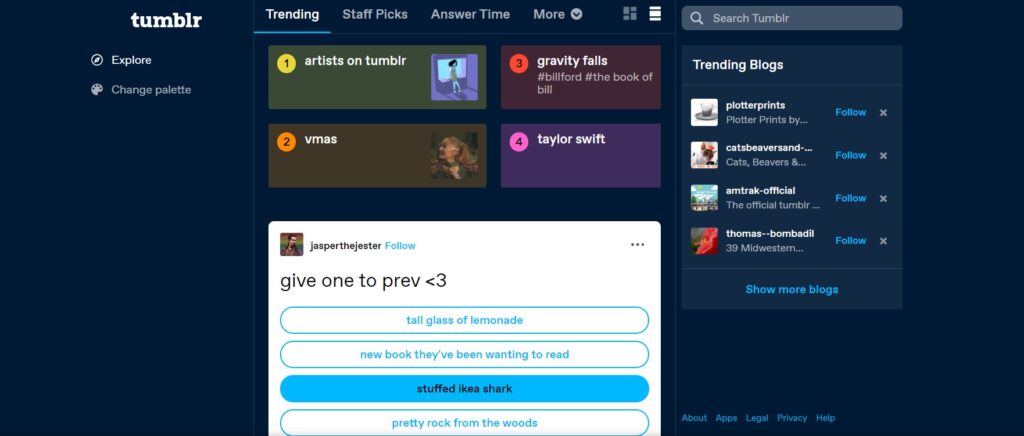
Tumblr is a microblogging platform that combines blogging with social networking features. It’s particularly popular among younger audiences and creatives.
Unique Features of Tumblr
- Community Engagement: Tumblr’s reblogging feature makes it easy to share content and interact with other users.
- Customizable Themes: Despite its simplicity, Tumblr allows for some degree of customization, letting you personalize your blog’s look.
- Mixed Media Posts: You can easily post a variety of content types, including text, photos, videos, and GIFs.
Who Will Love Tumblr?
Tumblr is ideal for creatives who want to share a mix of content types and engage with a community through reblogs and likes. It’s perfect for personal blogs, fan pages, and creative portfolios.
6. Weebly
Introduction to Weebly
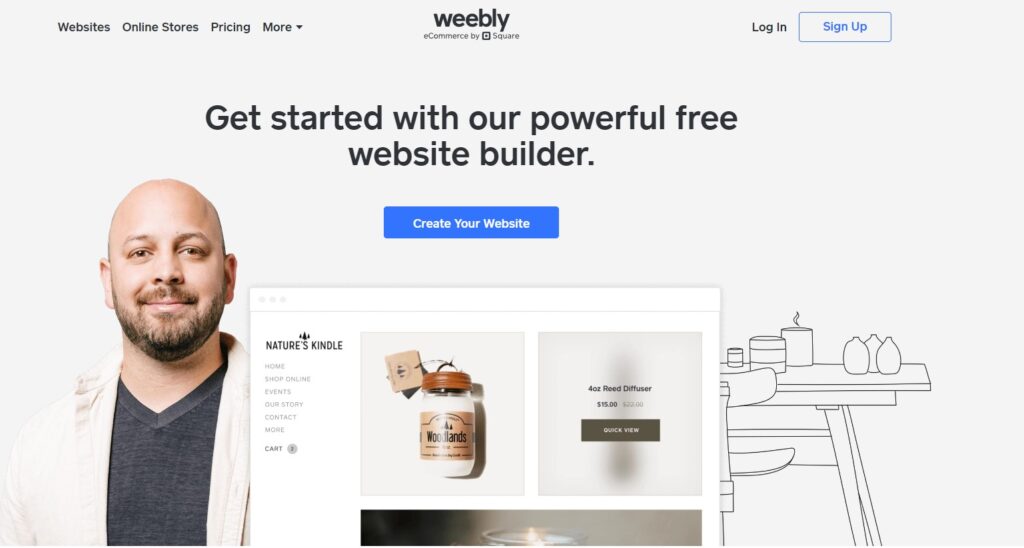
Weebly is another drag-and-drop website builder that offers blogging capabilities. It’s known for its ease of use and flexibility.
Features and Flexibility
- Drag-and-Drop Builder: Weebly’s interface is simple and intuitive, making it easy to create a professional-looking blog without any technical skills.
- Customizable Templates: Weebly offers a range of templates that you can customize to match your brand.
- E-Commerce Integration: If you plan to sell products through your blog, Weebly’s built-in e-commerce tools are a big plus.
Is Weebly Right for You?
Weebly is a good option for bloggers who also want to create a small business website, or for those who need a simple, easy-to-use platform with some additional features.
7. Ghost (Self-Hosted)
What is Ghost?
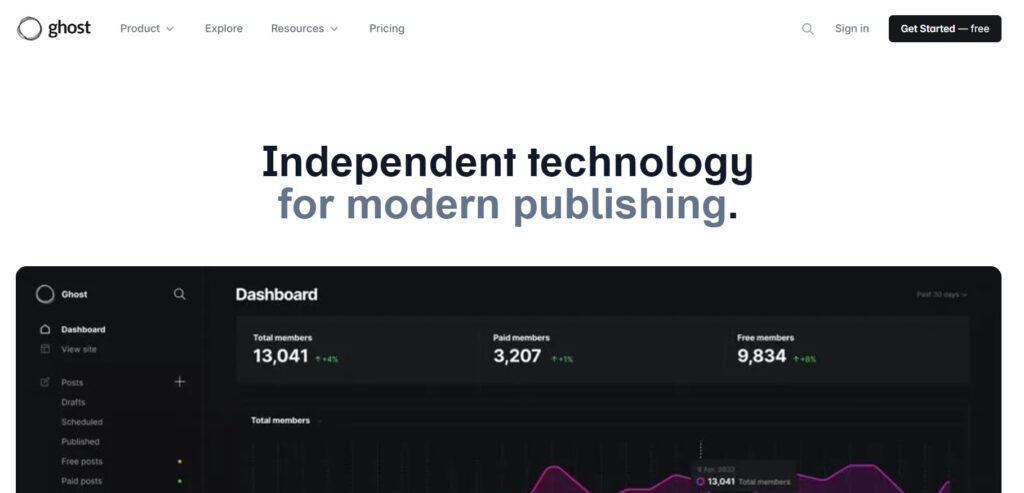
Ghost is a minimalist platform focused on professional publishing. It’s designed for bloggers who want a fast, streamlined writing experience.
How Ghost Differs from Other Platforms
- Speed: Ghost is built with speed in mind, ensuring your blog loads quickly.
- Markdown Support: For writers who prefer Markdown, Ghost offers full support, making it easy to format your posts.
- Customizable: While Ghost requires self-hosting, it provides more control over customization and functionality than most free platforms.
Best Practices for Using Ghost
Ghost is ideal for tech-savvy bloggers who want full control over their site’s performance and design. It’s best for professional blogs, magazines, and publications.
8. Jekyll + GitHub Pages
Overview of Jekyll and GitHub Pages
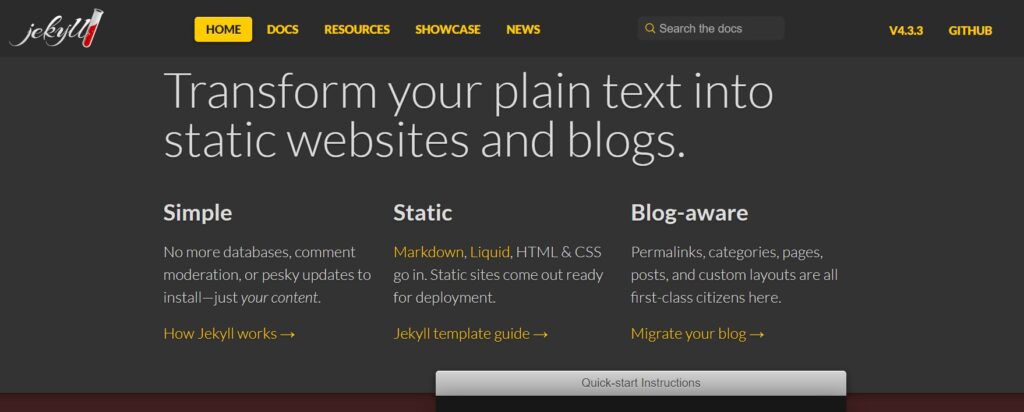
Jekyll is a static site generator, and GitHub Pages offers free hosting for Jekyll sites. Together, they provide a powerful, customizable blogging platform for developers.
Features and Customization
- Customization: With Jekyll, you can create a fully customized blog using HTML, CSS, and Markdown.
- Free Hosting: GitHub Pages offers free hosting for your Jekyll blog, making it a cost-effective solution for developers.
- Security: Static sites are inherently more secure, as they don’t rely on databases or dynamic content.
Why Choose Jekyll + GitHub Pages?
This combination is perfect for developers or tech-savvy users who want complete control over their blog’s design and functionality without the ongoing costs of traditional hosting.
9. Site123
Introduction to Site123
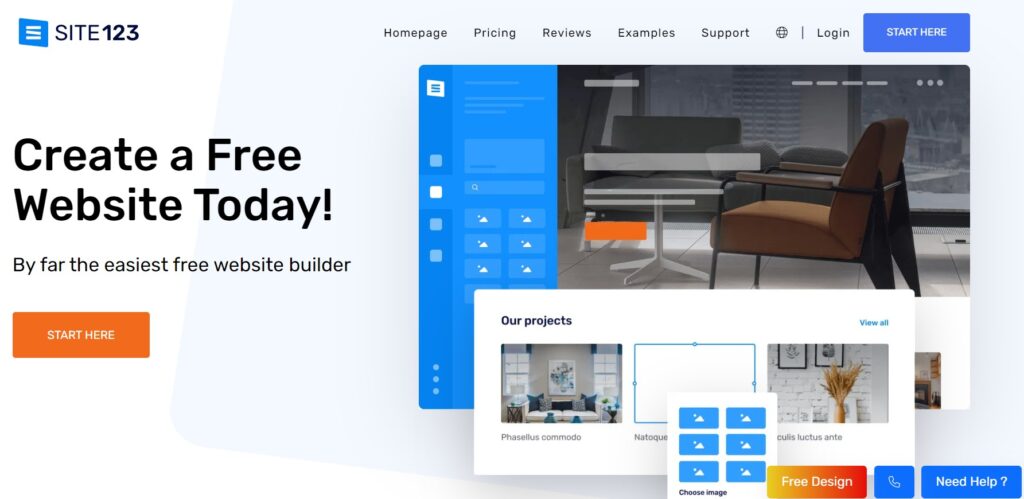
Site123 is a simple website builder that includes blogging capabilities. It’s designed for those who want to create a blog or website quickly without technical skills.
Ease of Use and Features
- No Technical Knowledge Required: Site123’s user-friendly interface allows anyone to build a blog quickly.
- Responsive Design: All Site123 blogs are mobile-friendly, ensuring your content looks great on any device.
- SEO Tools: Site123 offers basic SEO tools to help improve your blog’s visibility in search engines.
Ideal Users for Site123
Site123 is ideal for beginners who want a simple, easy-to-use platform to get their blog online quickly.
10. Strikingly
What is Strikingly?
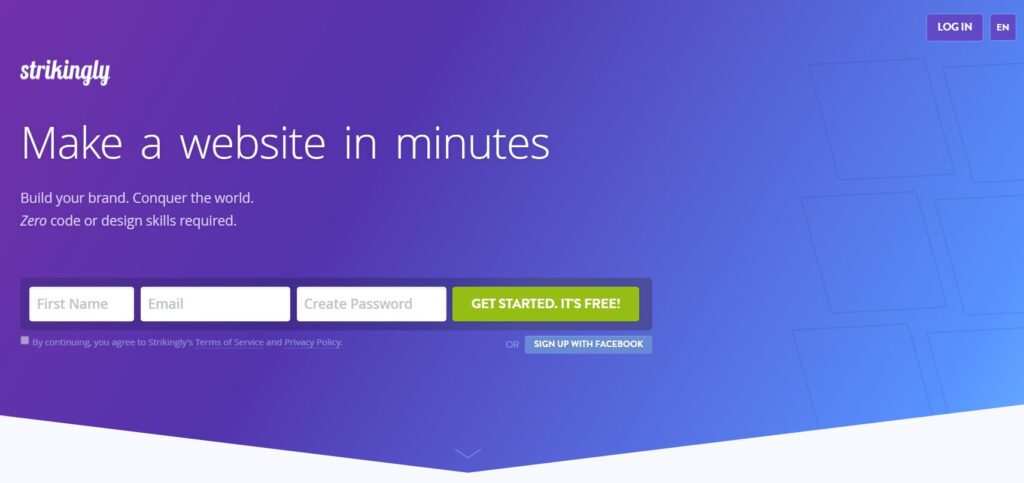
Strikingly is a website builder that specializes in creating single-page websites, making it a unique option for bloggers who want a straightforward, minimalist site.
Features and Benefits
- One-Page Design: Strikingly’s one-page design is perfect for bloggers who want a clean, focused presentation.
- Mobile Optimization: All Strikingly sites are optimized for mobile devices, ensuring a seamless experience for your readers.
- Simple Blogging Features: While not as feature-rich as some platforms, Strikingly offers basic blogging tools that are easy to use.
Why Strikingly is Great for Simple Blogs
If you want to create a simple, elegant blog without the hassle of managing multiple pages, Strikingly is an excellent choice.
11. Jimdo
Overview of Jimdo
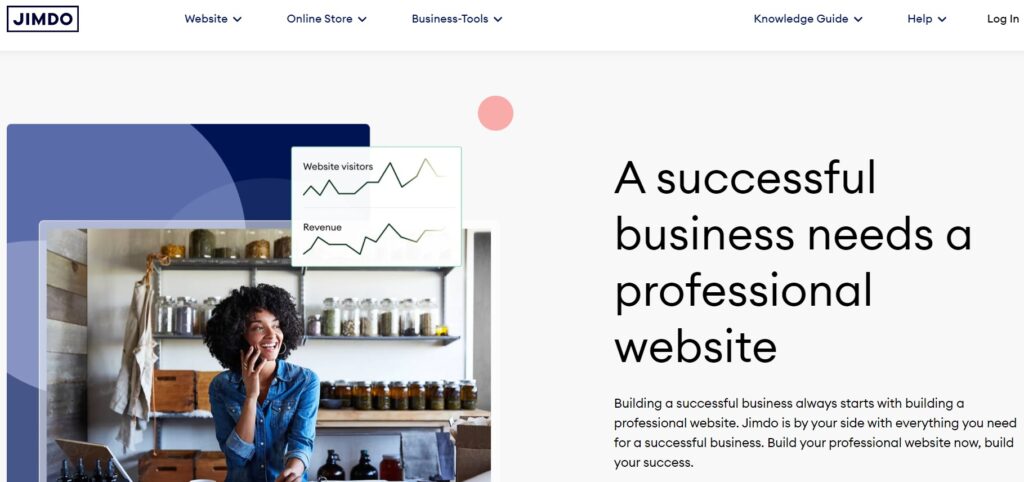
Jimdo is a website builder that includes blogging capabilities, designed for users who want to create a blog quickly without any technical skills.
Key Features and Simplicity
- Ease of Use: Jimdo’s interface is straightforward, allowing you to build your blog in just a few clicks.
- SEO Tools: Jimdo provides basic SEO tools to help your blog get found online.
- Customizable Templates: Jimdo offers a variety of templates that you can customize to fit your brand.
Is Jimdo Right for Beginners?
Jimdo is perfect for beginners who need a simple, all-in-one solution for creating a blog and website.
12. HubPages
What is HubPages?
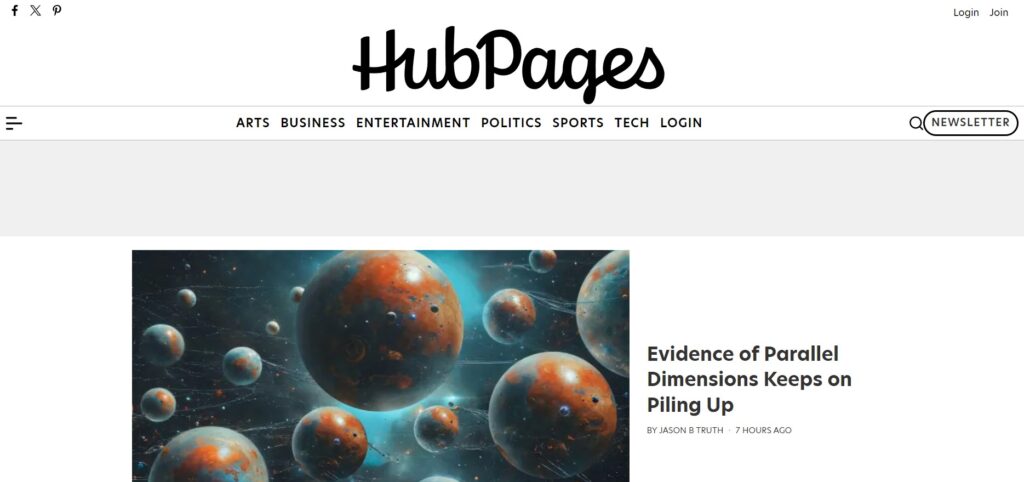
HubPages is a community-based platform that allows writers to create content on various topics and earn revenue through ads.
Monetization and Community
- Revenue Sharing: HubPages allows you to earn money based on the traffic your articles generate.
- Community Engagement: The platform has an active community of writers, providing opportunities for networking and collaboration.
- Ease of Use: HubPages makes it easy to publish articles without worrying about the technical aspects of blogging.
Who Should Consider HubPages?
If you’re looking to write and earn money from your content without the hassle of maintaining a blog, HubPages is an excellent choice.
13. Write.as
Introduction to Write.as
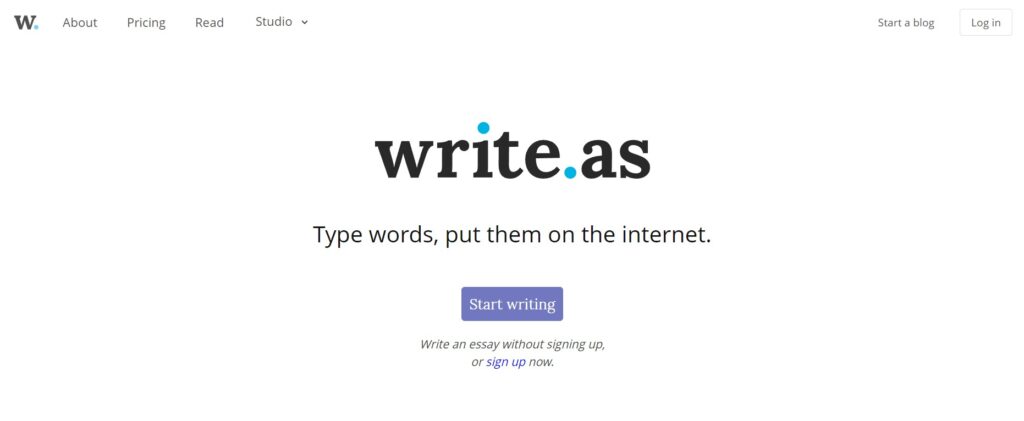
Write.as is a minimalist blogging platform focused on privacy and simplicity. It’s designed for writers who want a distraction-free writing environment.
Features for Writers
- No Ads: Write.as offers a clean, ad-free writing experience.
- Markdown Support: The platform supports Markdown, making it easy to format your posts.
- Privacy-Focused: Write.as emphasizes user privacy, making it a great option for those who want to blog anonymously or privately.
Why Choose Write.as for Minimalist Blogging?
If you’re a writer who values simplicity and privacy, Write.as is a great platform to consider.
14. LinkedIn
Using LinkedIn as a Blogging Platform
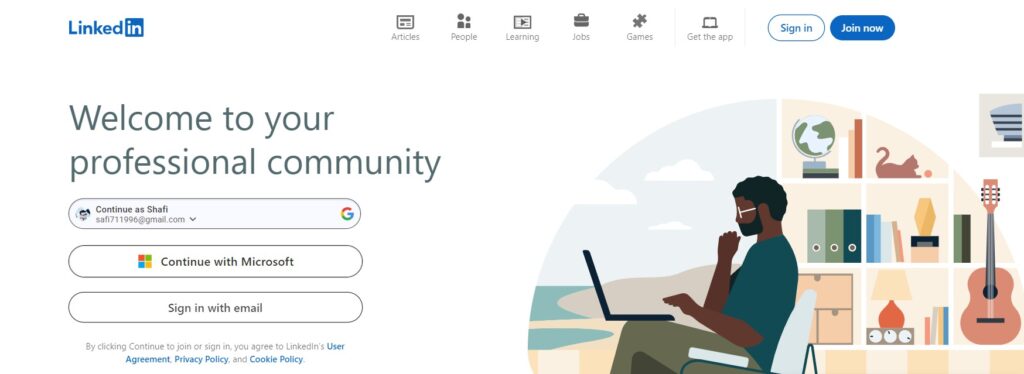
LinkedIn isn’t just for networking; it’s also a powerful platform for publishing content, especially for professionals and thought leaders.
Features and Audience
- Built-In Audience: LinkedIn provides access to a professional audience, making it ideal for business-related content.
- Publishing Tools: LinkedIn offers simple tools for writing and publishing articles directly to your profile.
- Engagement: Your content can easily be shared, liked, and commented on by your network, increasing its reach.
Best Practices for Blogging on LinkedIn
LinkedIn is perfect for professionals who want to share insights, industry news, or thought leadership content with a professional audience.
15. Substack
Overview of Substack
Substack is a platform designed for writers who want to publish newsletters, but it also doubles as a blogging platform.
Features and Benefits for Bloggers
- Newsletter Integration: Substack allows you to build an email list and send newsletters directly to your subscribers.
- Monetization: You can offer paid subscriptions to your content, providing a way to monetize your writing.
- Community: Substack’s growing community of writers and readers makes it easier to find and grow an audience.
Why Substack is Ideal for Newsletter Bloggers
If you’re looking to combine blogging with email newsletters, and want to monetize your content, Substack is an excellent choice.
How to Choose the Right Free Blogging Platform for You
With so many options available, choosing the right platform can feel overwhelming. Here are some factors to consider:
- Ease of Use: If you’re new to blogging, look for a platform that’s beginner-friendly, like WordPress.com or Blogger.
- Customization: For those who want full control over their blog’s appearance and functionality, consider platforms like WordPress.org (self-hosted), Ghost, or Jekyll + GitHub Pages.
- Community: If you want to connect with other writers and engage with a community, Medium or Tumblr might be the best fit.
- Monetization: Looking to make money from your blog? Platforms like HubPages and Substack offer monetization options.
Pros and Cons of Using Free Blogging Platforms
Advantages of Free Platforms
- Cost-Effective: Free platforms allow you to start blogging without any financial investment.
- Ease of Use: Most free platforms are designed with beginners in mind, offering user-friendly interfaces.
- No Technical Skills Required: Many free blogging platforms handle hosting, security, and updates for you, so you don’t need to worry about the technical side.
Potential Drawbacks
- Limited Features: Free platforms often come with limitations, such as limited storage, bandwidth, and customization options.
- Ads: Some free platforms display ads on your blog, which you have no control over.
- Scalability: As your blog grows, you may find that a free platform no longer meets your needs, requiring a switch to a paid option.
Conclusion
Blogging remains a powerful tool for sharing your voice with the world in 2024, and the best part is that you don’t need to spend any money to get started. From the simplicity of Blogger to the professional polish of WordPress.com, the 15 free blogging platforms we’ve covered offer something for everyone. Whether you’re looking for a minimalist writing space or a full-fledged website builder, these platforms make it easy to start your blogging journey quickly and effectively.
FAQs
Q1. What is the best free blogging platform in 2024?
The best platform depends on your needs. WordPress.com is highly recommended for its versatility, while Medium is great for writers looking to reach a broader audience.
Q2. Can I monetize my blog on a free platform?
Yes, some free platforms, like HubPages and Substack, offer monetization options. However, platforms like WordPress.com may require an upgrade to a paid plan for full monetization features.
Q3. How secure are free blogging platforms?
Free blogging platforms generally offer good security, but they may have limitations compared to self-hosted options. Always use strong passwords and enable any available security features.
Q4. Can I switch from a free platform to a paid one later?
Yes, many bloggers start with a free platform and later switch to a paid one as their needs grow. Most platforms offer tools to help with this transition.
Q5. Do I need technical skills to use these platforms?
Most free blogging platforms are designed to be user-friendly and don’t require technical skills. However, platforms like Ghost and Jekyll + GitHub Pages are better suited for those with some technical knowledge.




